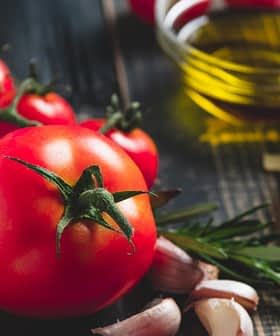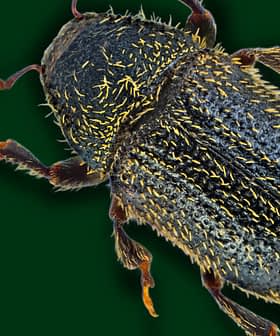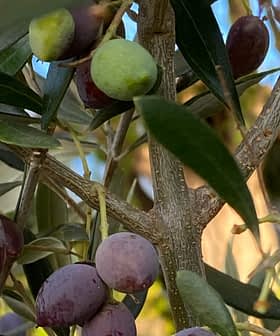Formidable Fat: The Plant-Based Olive Oil Diet
Dr. Mary Flynn developed a plant-based olive oil (PBOO) diet as an alternative to low-fat diets, drawing from research on the Mediterranean Diet and evidence supporting healthy fats. Her diet has shown positive results in weight loss and improving risk factors for chronic diseases, and she aims to bring it to low-income populations despite challenges such as funding and concerns about adulterated olive oils.
For Brown University researcher and Associate Professor of Clinical Medicine Dr. Mary Flynn, the development and advocacy of a plant-based, olive oil diet was at one time considered outrageous. In the 1990s when the notion of consuming low-fat and fat-free foods for health was gaining widespread popularity, Flynn, who is also a nutritionist at The Miriam Hospital, was a vocal dissident. She openly expressed her concerns that this eating pattern was largely unsupported by sound science, even though many others in her field opposed her views. “I know that people in the nutrition community thought I was a near heretic,” Flynn says.

Flynn had always had an interest in dietary guidelines and how various diet patterns impact weight and disease risk. She was especially intrigued after having read the Seven Countries Study in the mid-1980s that demonstrated notable cardiovascular benefits from what is now widely known as the Mediterranean Diet, in which individuals consume considerable amounts of healthy fats, especially olive oil. Flynn had also spent time analyzing the literature behind dietary guidelines and recommendations and was “astounded” by the lack of evidence supporting the health claims made by proponents of low-fat diets. She went on to co-author a book, Low-Fat Lies (Lifeline Press, 1999), drawing on the scientific evidence revealing the numerous problems with extremely low-fat diets and demonstrating the positive effects of a more Mediterranean-style eating pattern.
From this foundation, Flynn’s plant-based olive oil (PBOO) diet was born. She determined its components based on validated research examining food and chronic diseases. The cornerstone foods of the diet are extra virgin olive oil, vegetables (with particular emphasis on those with deep color and those from the cruciferous family), and starches/grains (ideally those that are whole), with minimal animal protein. Flynn was initially curious as to whether or not her diet would aid in weight loss. She hypothesized that as long as calories were controlled (~1500 calories per day for women, ~1800 – 2000 calorie per day for men), having healthy fats at every meal, in the form of nuts at breakfast and extra virgin olive oil at lunch and dinner, along with vegetable-heavy lunches and dinners, would help individuals feel more satiated and help them lose weight. Overall, those who follow her diet eat four to five servings of fat daily, most of which is extra virgin olive oil.
She went on to research whether a plant-based olive oil diet would improve risk factors for chronic disease, including breast and prostate cancers, relative to a lower fat diet. In one major study of 44 women with breast cancer, participants were assigned either a conventional diet where less than 30 percent of calories came from fat or a plant-based olive oil diet. The women followed the diets for eight weeks of weight loss and then could choose which they wanted to continue on for six months of follow-up. Somewhat surprisingly to Flynn, a strong majority of the women chose her diet, saying that the meals tasted better, were easy to prepare, inexpensive, and could be used both for everyday eating and when entertaining. Moreover, those who have tried to adopt the plant-based olive diet in both research and outpatient settings have mentioned feeling better after just one day following it, which is a powerful motivator for lasting behavior change.
As the tide began to turn in the early 2000s and the claims for low-fat diets grew more dubious, new dietary culprits were called into question, such as refined carbohydrates and gluten. Meanwhile, more research emerged exploring the benefits of diets rich in healthy fats. These days, Flynn is noted for seemingly having known before others that low-fat diets were not optimal for health. “I constantly hear from people now ‘How did you know low-fat diets were unhealthy?’ ” She laughs this off remarking that she would simply always read the references supporting dietary guidelines and was a critical reviewer of the evidence. “I constantly tell my students to not take dietary guidelines at face value; look into the evidence.”
Now that Flynn’s diet has demonstrated acceptance and encouraging results among several different populations, she feels that its potential is even greater than she had first fathomed. The financial accessibility of a plant-based olive oil diet is one of its most significant features, since it is often assumed that such an eating pattern will inherently be pricier than a more traditional standard American diet. Flynn remarks, “When someone says that olive oil is expensive, I point out that they are comparing olive oil pricing to vegetable oil, which I do not think is a fair comparison.” She goes on to note that since animal products often comprise the lion’s share of one’s food budget, purchasing less meat while adding more olive oil typically results in a decrease in overall food costs. This point is especially important for Flynn’s current work with food pantry clients and her future plans to bring the diet to low-income populations to improve their risk factors for chronic diseases.
When asked about the impact of importation of adulterated olive oils on her work, Flynn said that it was a “huge concern.” She realized that the ubiquity of poor-quality olive oils likely explains why she did not always get consistent results with her patients. She feels that “a people’s revolution” is needed to have an impact on the corruption issues in the olive oil world and aims to improve others’ knowledge and awareness of the adulteration problem by spreading the word.
What’s next for Flynn? With teaching, research, clinical and non-profit work on her plate, she still feels that there is much left to learn about the application of a plant-based diet that includes high-quality extra virgin olive oil. Securing funding remains challenging, which Flynn attributes in large part due to the “dismal failure” of low-fat diet research. She also is confident in the potential of using “food as medicine” to improve risk factors for chronic diseases among low-income groups, which offers dual benefits of improving lives as well as decreasing health care costs. She is also curious about the freshness of olive oil vis-à-vis its provision of health benefits and whether there is a cutoff at which these benefits begin to decline.









